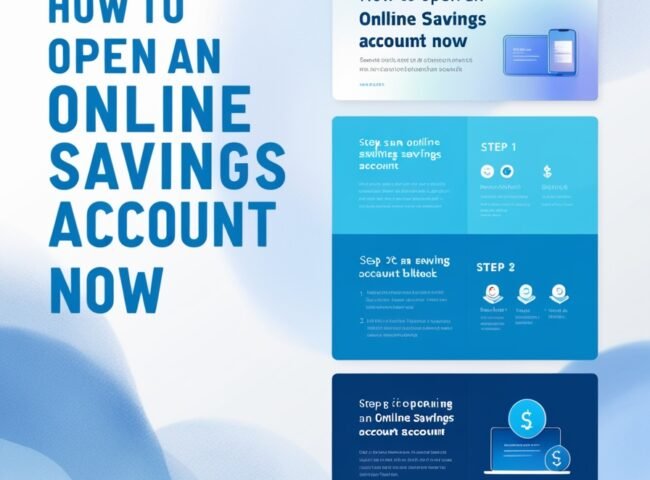
1. Introduction
How to Avoid Common Financial Mistakes for Small Businesses
Running a small business comes with a host of financial responsibilities. Whether you’re just starting out or have been in business for years, it’s easy to fall into financial traps that can harm your company’s stability and growth. In this guide, we’ll highlight the most common financial mistakes that small businesses make and provide practical advice on how to avoid them.
2. Not Separating Personal and Business Finances
One of the biggest mistakes small business owners make is not separating their personal finances from their business finances. This can lead to confusion, inaccurate bookkeeping, and tax complications.
Why It’s Important to Separate Finances:
- Clear Accounting: Mixing personal and business expenses makes it difficult to track profitability and manage cash flow.
- Tax Efficiency: Keeping finances separate ensures you can claim all business-related tax deductions and comply with tax regulations.
- Legal Protection: Separating finances protects your personal assets in case your business faces legal or financial troubles.
How to Avoid This Mistake:
- Open a Business Bank Account:
Open a dedicated business checking account and use it exclusively for business expenses. - Get a Business Credit Card:
Use a separate business credit card to keep track of all business-related purchases and expenses. - Pay Yourself a Salary:
Instead of dipping into business funds for personal use, pay yourself a regular salary or draw.
Video on separating personal and business finances:
How to Separate Personal and Business Finances
3. Failing to Create a Budget
Many small businesses fail to create a budget, which can lead to overspending and cash flow problems. Without a clear budget, it’s hard to plan for upcoming expenses or make informed financial decisions.
Why Budgeting is Essential:
- Track Expenses: A budget helps you track where your money is going and identify areas where you can cut costs.
- Plan for Growth: With a budget, you can allocate funds for new investments or business expansions.
- Avoid Cash Flow Issues: Budgeting helps ensure you have enough cash on hand to cover expenses during slower months.
How to Create a Budget:
- List Your Fixed and Variable Expenses:
Include rent, utilities, payroll (fixed) and marketing, office supplies, or inventory (variable). - Estimate Income:
Look at past revenue trends and project your income for the upcoming months. Be conservative in your estimates. - Set Aside Funds for Emergencies:
Always include a buffer for unexpected expenses or slower periods.
Pro Tip: Revisit and adjust your budget regularly as your business grows and market conditions change.
Watch a video on small business budgeting:
How to Create a Small Business Budget
4. Ignoring Cash Flow Management
Cash flow is the lifeblood of any small business. Even if your business is profitable on paper, poor cash flow management can lead to financial strain. Cash flow refers to the amount of cash coming into your business (income) versus the amount going out (expenses).
Signs of Cash Flow Problems:
- Struggling to pay bills on time
- Relying heavily on credit to cover expenses
- Frequently running out of cash during slow months
How to Improve Cash Flow Management:
- Track Your Cash Flow Regularly:
Use accounting software like QuickBooks or Xero to monitor cash flow and ensure you know your cash position at all times. - Speed Up Invoicing:
Send invoices promptly and offer discounts for early payments to encourage faster payment from clients. - Negotiate Better Payment Terms:
Try to extend payment terms with suppliers or vendors, giving you more time to manage outflows. - Build a Cash Reserve:
Set aside part of your profits each month to build a cash cushion for slow periods.
Video on managing cash flow:
Tips for Managing Cash Flow in Small Business
5. Not Planning for Taxes
Many small business owners fail to plan for taxes, leading to cash shortages when tax season arrives. In some cases, they may not be aware of tax deductions and credits available to them.
Common Tax Mistakes:
- Not Setting Aside Enough for Taxes:
It’s easy to overlook taxes in your monthly financial planning. Set aside at least 25-30% of your income for tax payments. - Missing Deductions:
Small business owners can deduct a range of expenses, including home office costs, travel, and office supplies. Failing to track these can result in overpaying taxes.
How to Avoid This Mistake:
- Work with a Tax Professional:
Hiring an accountant or tax professional can help ensure you’re taking advantage of all deductions and avoiding costly tax mistakes. - Keep Accurate Records:
Maintain detailed records of all business expenses, income, and receipts. - Pay Estimated Quarterly Taxes:
If you’re self-employed or own a small business, you may need to pay estimated taxes quarterly instead of waiting until the end of the year.
Video on small business tax planning:
Small Business Tax Planning Tips
6. Overlooking Insurance Needs
Insurance is often an afterthought for small business owners, but failing to have adequate coverage can lead to significant financial losses in the event of an accident, lawsuit, or disaster.
Types of Business Insurance to Consider:
- General Liability Insurance: Protects your business from claims of bodily injury or property damage.
- Workers’ Compensation Insurance: Required if you have employees, this covers medical expenses and lost wages if an employee is injured on the job.
- Property Insurance: Covers damage to your business property due to theft, fire, or natural disasters.
- Professional Liability Insurance: Protects against claims of negligence or mistakes in your professional services.
How to Avoid This Mistake:
- Consult with an Insurance Agent: Speak with a professional to identify what type of insurance coverage your business needs based on its operations and risks.
- Regularly Review Your Coverage: As your business grows, your insurance needs may change, so it’s important to review your policies annually.
Watch this video on small business insurance:
Types of Insurance Small Businesses Need
7. Conclusion
Financial mistakes can cost your business time, money, and even its survival. By avoiding these common errors—such as mixing personal and business finances, ignoring cash flow management, and failing to plan for taxes—you can protect your business from unnecessary risks and set it up for long-term success.
Take the time to create a solid budget, manage your cash flow, and ensure you have the right insurance and tax planning strategies in place.
Ready to take control of your business finances?
Explore accounting software and financial management tools to streamline your business processes today!
Back view






Leave feedback about this